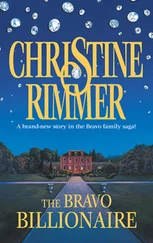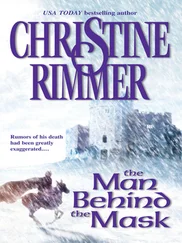Bowie and Brett’s mom called next. Angie repeated the happy news and then passed the phone to Bowie. “Your mom wants to talk to you.”
He took it. “Hey, Ma.”
“Bowie, it’s so good to hear your voice.” He could tell that she was smiling, just by her tone. And maybe getting a little misty-eyed, too. He’d kept in touch with her in the time he’d been away, even started calling her now and then in recent years. Twice in the past two years she’d visited him up in the Santa Cruz Mountains. She said, “You come on down the street and see me.”
He wasn’t going anywhere until Johnny got home. “I will, Mom. In a few hours.”
“Shall I fix up a room for you?”
“I don’t know yet.”
“Think about it.”
“I will.”
He’d barely hung up when Glory’s mom and dad—and her aunt Stella, too—arrived. He and Brett went downstairs to let them in. Brett answered the door and they all three looked like they were seeing a ghost when they caught sight of Bowie.
“Bowie!” Glory’s dad, whom everyone called Little Tony, clapped him on the back. “Good to see you, man!” He actually seemed to mean it.
Mamma Rose and Stella were friendly enough, too. They’d always been civil to him. Back when Johnny was born and Bowie had hounded Glory for months on end to marry him, the older generation of Dellazolas were all on his side. They were good Catholics. They believed that a man ought to be allowed to do the right thing and marry the mother of his child.
Bowie did see the irony. He’d been so worried about everyone’s reaction to his showing up. But Stella was more upset about Glory’s phone message than she was about seeing Bowie Bravo back in town again. She clutched her rosary to her chest. “I am hurt. Terribly hurt. Glory said she didn’t want me here. Why wouldn’t she want me here?” And then she started quoting scripture. “‘And I will cleanse them from all their iniquity, whereby they have sinned against me; and I will pardon all their iniquities, whereby they have sinned, and whereby they have transgressed against me.’” She turned her dark eyes on Bowie then. Probably because he was the biggest sinner in the front hall at that moment. “Jeremiah, thirty-three,” she declared in a noble tone, “verse eight.”
Mamma Rose, who was taller, thinner and prettier than her sister, patted Stella’s shoulder. “Now, Stell, you can’t go taking it personally. You know how Glory is.”
Stella pursed up her lips and fingered her rosary. “Yes, I do, sadly enough.”
Rose put an arm around her and gave her a quick squeeze. “You know what they say? This, too, shall pass away.”
Stella’s reply to that was an injured, “Hmmph.”
A minute later, the two women went upstairs and Glory’s dad joined Brett and Bowie in the kitchen. Brett and Little Tony seemed right at home in Glory’s house. Brett got a fresh pot of coffee brewing and Little Tony went through the cupboards and the fridge looking for snacks, coming up with some packaged cookies and a box of mini chocolate doughnuts.
They sat for half an hour or so, drinking coffee, eating the doughnuts and talking about the weather and the New Bethlehem Flat High School basketball team. Nobody seemed to want to get around to the big, fat elephant in the room—which was what was Bowie doing there and where the hell had he been for all this time?
And then Mamma Rose appeared. She loaded some food and juice on a tray and took it back upstairs.
Once she was gone, Little Tony finally broached the delicate subject. “So, tell me, Bowie, how you been for all these years?”
Bowie said he was doing okay, that he lived in Santa Cruz, up in the mountains.
“You find work?”
“I did. I’m a carpenter now.”
“As in construction?”
“I build mostly furniture.”
“Any money in that?”
“I make a living.”
“Good. Good. And it’s great to see you back in town.”
“Yeah,” Brett agreed. “Good to have you back.”
Bowie figured that was probably the warmest welcome he was going to get—except maybe when he went down the street to say hi to his mother. He told himself to be grateful that a few people seemed glad to see him. For the rest of them, he would either earn their respect—or get along without it, as he’d been doing for all of his life.
Later, after Brett and Little Tony left, Bowie sat in Glory’s kitchen for a while, wondering what he ought to do with himself now. The women were all upstairs with Glory and the baby, doing whatever women do after a baby comes. The kitchen clock and the Timex watch he’d used to time Glory’s contractions both agreed that it was quarter of one. What time did school get out? Two? Three? Four?
He took off the watch and put it back in the drawer where he’d gotten it and then he wandered around downstairs for a while. It was a great house. He’d always admired it. The place was well over a hundred years old and still standing strong. There were built-ins—that little desk area in the kitchen, the dining-room china cabinet and the waist-high bookcases on either side of the family-room fireplace. The bookcases, like the mantelpiece, were hand-carved with flowers and vines.
Eventually, when he ran out of quality woodwork to appreciate, he put on his jacket and went outside. The storm had dropped about six inches of new snow, white and pure, stretching out over the wide field at the back of the Rossi house, all the way to where the pines started. Since the house was at the end of Jewel Street, where the street hooked to the northeast and then came to an end, there was a good deal of open land around it on the north and east sides. His breath pluming in the icy air, he stood at the base of the back-porch steps and looked up at the mountains that rimmed the town, all of them blanketed in snow-dusted evergreens.
His hometown. In some ways it still didn’t seem real to him, that he was here, that he’d actually done it. Returned to the place of his childhood. The place where he’d grown up and made such a mess of everything.
After a moment, he shook his head. He started moving, trudging through the fresh, powdery snow, out to the big gray barn fifty feet or so behind the house.
The barn had windows. He wiped the snow off the panes and peered in. The structure had been divided. The smaller side was a garage for a riding mower and other yard equipment. The larger section was a workshop. Through one of the workshop windows, he saw a cot and a free-standing woodstove, as well as pegboards hung with tools and long, rough waist-high wooden workbenches. A fluorescent light fixture hung from a ceiling beam.
It wasn’t bad. Big enough for both a place to work and a living area. His needs were simple. A cot to sleep in and a stove to keep him warm during the long winter nights. If he stayed, the workshop would suit him fine, although he’d have to have a phone installed because his cell wasn’t going to be any use to him here.
But getting a landline put in was no biggie. The biggie would be getting Glory to go for it. He hardly felt confident on that point.
You’ve got zero hope of getting a yes if you never ask the damn question, Wily Dunn would have said.
Right, Wily. But it’s Glory we’re talking about here. Glory wouldn’t give him a yes if her life depended on it.
Still. If he felt he had to, he would ask the question, anyway. He’d know better what his next step should be after a certain six-year-old got home from school.
He returned to the back porch, knocked the snow off his boots and went inside again. Angie and Stella were in the kitchen and something that smelled good simmered on the cooktop.
“Soup and a sandwich?” Angie asked. She looked at him warmly, he thought. And suddenly, he was grateful after all that he’d come today, that for once, he’d been there for Glory when she needed him—and that her sister knew it.
Читать дальше












